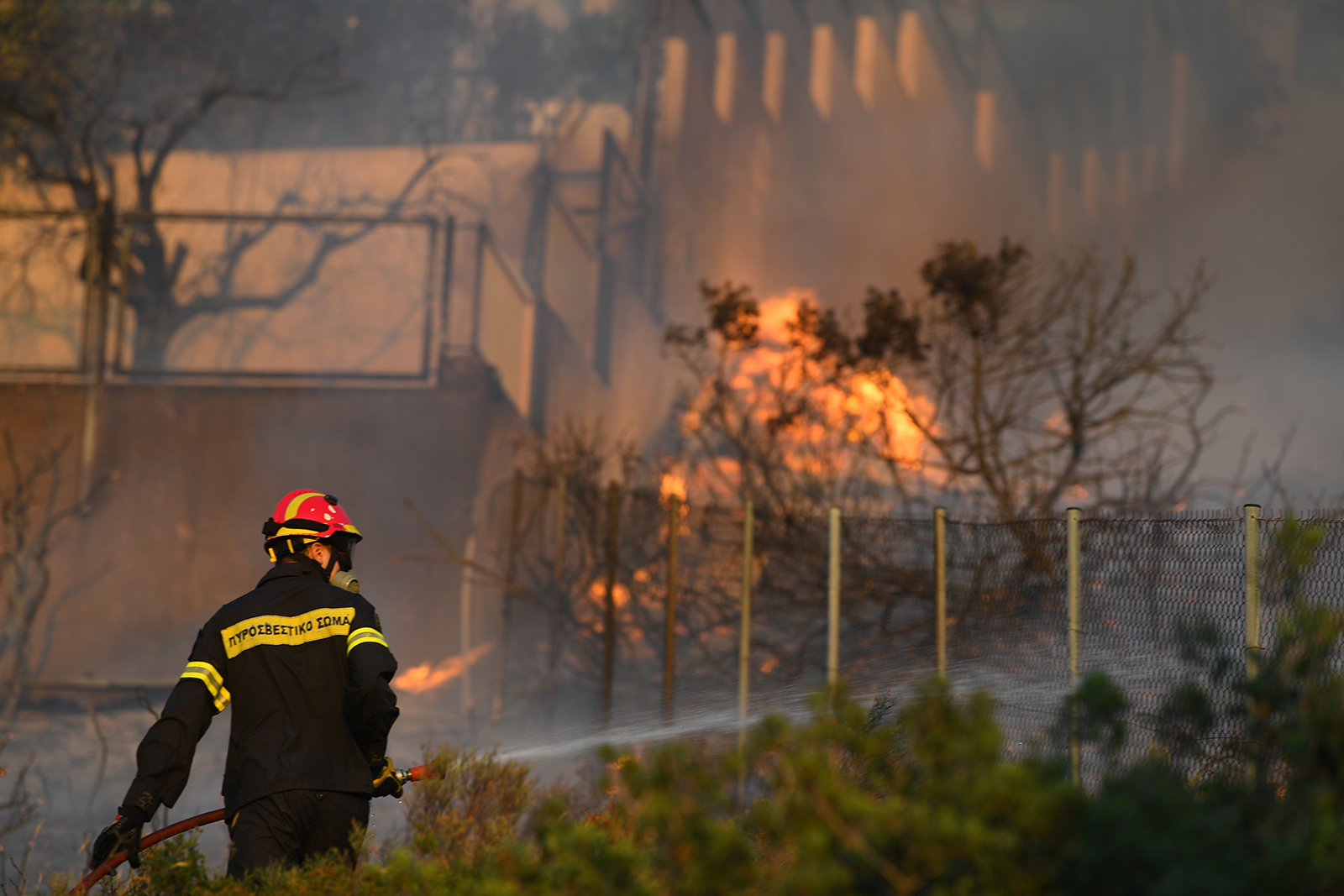
As extremely high temperatures are set to intensify over southern Europe, the current heat wave has "undoubtedly" brought the climate crisis closer to home for many people. It has turned Italy and nearby countries into a "giant pizza oven,” according to scientist statements compiled by the UK-based Science Media Centre.
"The bubble of hot air that has inflated over southern Europe has turned Italy and surrounding countries into a giant pizza oven,” Hannah Cloke, a climate scientist and professor at the University of Reading, said in a statement Monday.
“The hot air which pushed in from Africa is now staying put, with settled high pressure conditions meaning that heat in warm sea, land and air continues to build," Cloke explained.
Simon Lewis, the chair of global change science he University College London, warned that “this is just the beginning,” and pointed out that this summer’s weather extremes are happening as the planet has warmed 1.2 degrees Celsius above pre-industrial levels — still short of the 1.5-degree threshold scientists are pleading with society to stay under.
"Current policies globally have us hitting 2.7 degrees (Celsius) warming by 2100. That’s truly terrifying,” Lewis said in a statement. “As scientists agreed last year: There is a rapidly closing window of opportunity to secure a liveable and sustainable future for all."
Scientists have warned for decades that the climate crisis would supercharge extreme heat, which was already among the deadliest weather phenomena.
“(Heat waves) are occurring more frequently and are becoming more intense and are resulting in infrastructure breakdown, human health issues and fatalities, drought and water shortages and we are not currently prepared for these types of events,” said Melissa Lazenby, a senior lecturer in climate change at the University of Sussex.
“We are moving out the usual and well-known natural oscillations of the climate to unchartered and more extreme territory," she added.










